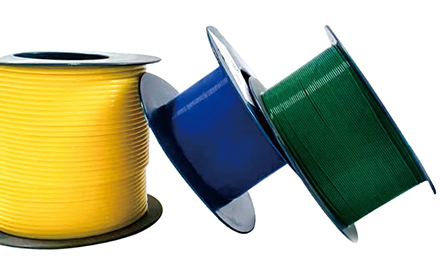PTFE (polytetrafluoroethylene) tubing is an industrial piping material with excellent performance and is widely used in various industrial fields due to its excellent chemical stability and high temperature resistance.PTFE Tubing is commonly used to transport a variety of fluids, especially those with corrosive or high temperature requirements.

Main properties of PTFE tubing
1. Chemical stability: PTFE pipe shows excellent corrosion resistance in most chemical media. It is resistant to a wide range of chemicals such as acids, alkalis, salts and organic solvents, and is suitable for applications that require the handling of strong acids, alkalis or other corrosive fluids.
2. High temperature resistance: PTFE tubing has extremely high temperature resistance, able to work stably in the temperature range of -200 ° C to +260 ° C. This makes it in high temperature environments. This gives it a significant advantage in applications in high temperature environments.
3. Low coefficient of friction: PTFE tubing has a very low coefficient of friction, so it can effectively reduce the resistance of the fluid when conveying fluid, and improve the efficiency of fluid transmission.
4. Insulating properties: PTFE TUBEs have excellent electrical insulation properties and can effectively block current conduction. This property makes it very popular in electronic and electrical applications as well.
5. Non-sticky: PTFE has a very smooth surface and is very non-stick. This means that during use, the inner wall of the tube will not be blocked by adhering substances and fluids can flow freely.
Areas of application
1. Chemical industry: PTFE TUBEs are widely used in the transportation and handling of chemicals due to their excellent chemical stability during chemical reactions or chemical transfer.
2. Pharmaceutical industry: The high purity and corrosion-resistant properties of PTFE TUBEs make them an ideal choice for the transportation and handling of pharmaceuticals in pharmaceutical facilities, ensuring the quality and safety of medicines.
3. Food processing: PTFE tubes are also widely used in food processing and packaging due to their non-reactive and easy-to-clean characteristics, which meets food safety standards.
4. Electronics industry: Due to its excellent electrical insulation properties, PTFE tubes are commonly used for cable protection and electrical insulation in electronic equipment.
5. Aerospace: PTFE tubing is used in aerospace applications including liquid fuel transfer and other high-performance materials where its high temperature and corrosion resistance are key to meeting the demands of extreme conditions.
Selection and Maintenance
There are several factors to consider when selecting PTFE tubing:
1. Tube Diameter and Thickness: Select the appropriate tube diameter and thickness to meet the needs of the particular application.
2. Temperature and Pressure Requirements: Ensure that the PTFE tubing selected is capable of functioning properly within the operating temperature and pressure range.
3. Chemical compatibility: According to the nature of the conveyed fluid, select PTFE tubes with appropriate chemical stability.
For maintenance, the integrity of the PTFE tube should be checked regularly to ensure that it has not been damaged or leaked during operation. During cleaning, it is recommended to use non-abrasive cleaners to avoid damage to the tubing.
PTFE tubing has demonstrated its importance in numerous industrial applications due to its excellent chemical stability, high temperature resistance, low coefficient of friction and good electrical insulation properties. From the chemical industry to food processing, from the pharmaceutical industry to aerospace, PTFE tubing is ideal for a variety of complex applications due to its superior performance.




 English
English

